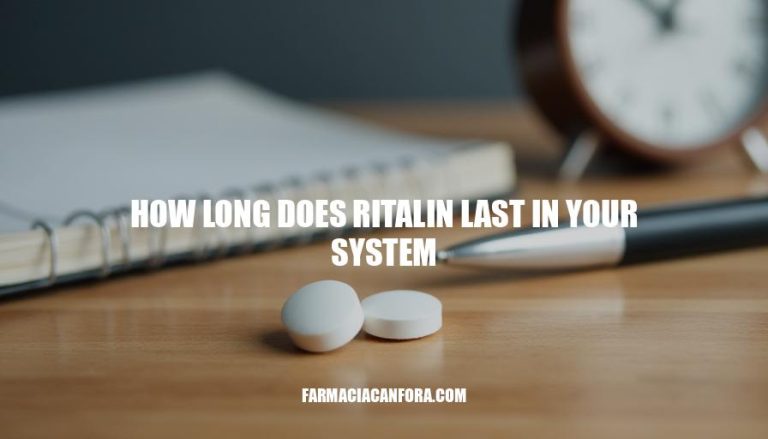


Ritalin is a medicine that helps people with ADHD and narcolepsy. It works by changing the way certain chemicals in the brain work, which makes it easier to focus and pay attention. For people with ADHD, Ritalin can make a big difference in their lives by reducing symptoms like hyperactivity, impulsiveness, and not being able to focus.
Ritalin, also known as methylphenidate, has a half-life of approximately 2-3 hours. This means that it takes about 2-3 hours for half of the drug to be eliminated from the body. The duration of its effects depends on the formulation:
Immediate-release (IR) Ritalin: Typically lasts for about 3-4 hours.
Extended-release (ER) Ritalin: Can last for around 8-9 hours.
Several factors can influence how long Ritalin remains in the system:
Dosage: Higher doses may take longer to be metabolized and eliminated.
Metabolism: Individual differences in metabolism can affect how quickly the drug is processed.
Age: Older individuals may eliminate the drug more slowly than younger individuals.
Overall health: Health conditions, especially those affecting the liver or kidneys, can impact drug metabolism and elimination.
Body mass: Weight can influence the rate at which the drug is eliminated from the body.
These factors can result in variations in how long Ritalin stays in the system and how long its effects last.
Ritalin is a medication that helps individuals with ADHD and narcolepsy by altering brain chemicals, making it easier to focus and pay attention.
The duration of Ritalin’s effects varies depending on the formulation: immediate-release typically lasts 3-4 hours, while extended-release can last up to 8-9 hours.
Several factors influence how long Ritalin remains in the system, including dosage, metabolism, age, overall health, and body mass. These variables can result in differences in how long Ritalin stays in the body and how long its effects last.
It is essential to consult with healthcare professionals for personalized advice on managing Ritalin’s effects and ensuring safe use. They can provide guidance tailored to individual needs, taking into account factors that may impact drug metabolism and elimination.